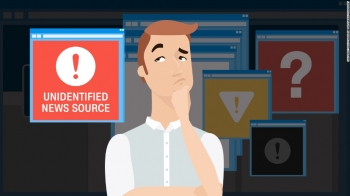Fake news - don't be fooled
(Posted on 06/07/17)

In a nutshell, ‘fake news’ is completely made up, created intentionally to resemble credible journalism and attract as much attention as possible. The impact of widespread sharing of fake news on politics and democracy has even led to an enquiry launch into it by the UK parliament.
But fake news affects more than just politics and journalism, any sector that relies heavily on online research, is at great risk of being duped by non-credible sources. Here are some tips on how you can detect a possible fake news story:
- Has the story been reported anywhere else?
- Is it on the radio, TV or in the newspapers?
- Have you heard of the organisation that published the story?
- Does the website where you found the story look genuine?
- Does the website address at the very top of the page look real? Is the end of the website something normal like '.co.uk' or '.com', and not something unusual, like 'com.co'?
Social media sites like Facebook have recently joined the fight against fake news, flagging up possibly made up stories with the help of third party analysts, however it always helps to be aware of the ‘facts’ you are taking in. We all know that much of what we see on the Internet is not real – from the latest anti-ageing fad to photo-shopped celebrity bikini pics - so we look, laugh, shake our heads and move on. We all just need to remember to apply the same level of healthy scepticism to what purports to be news too.
If you are looking for ways to generate compelling yet genuine news stories for your business, contact Zebra on info@zebra-comms.co.uk and we will be happy to discuss your options.







